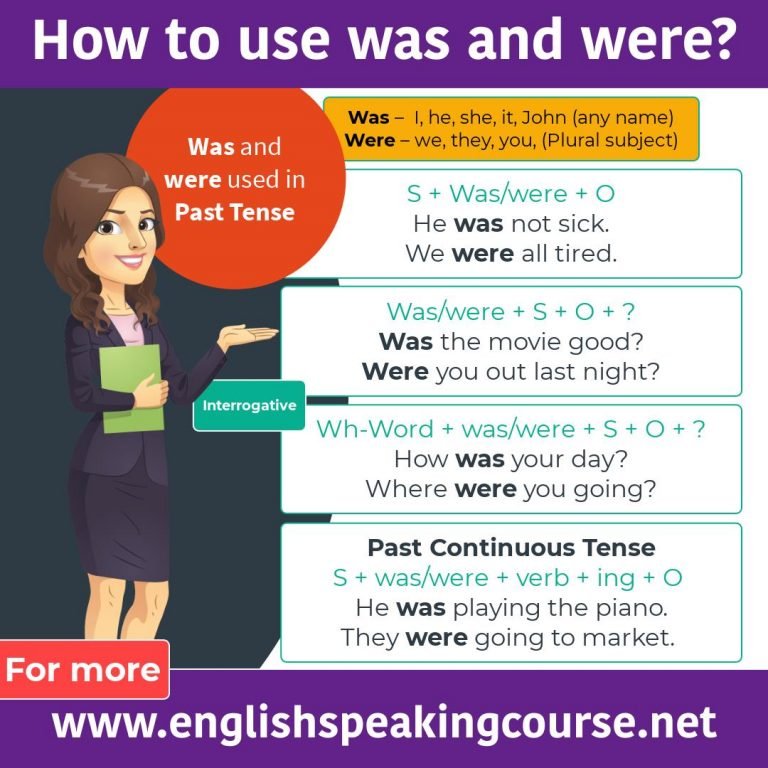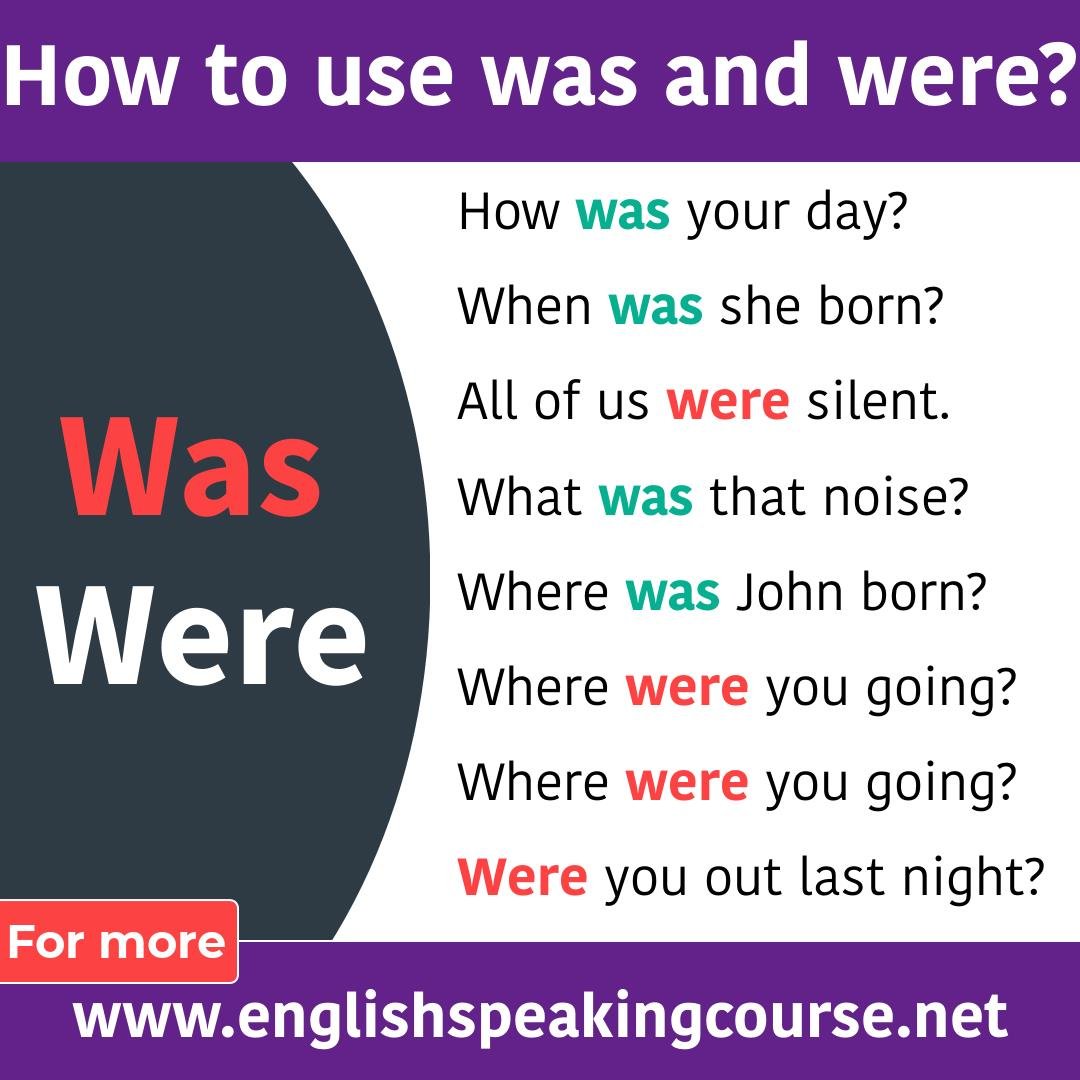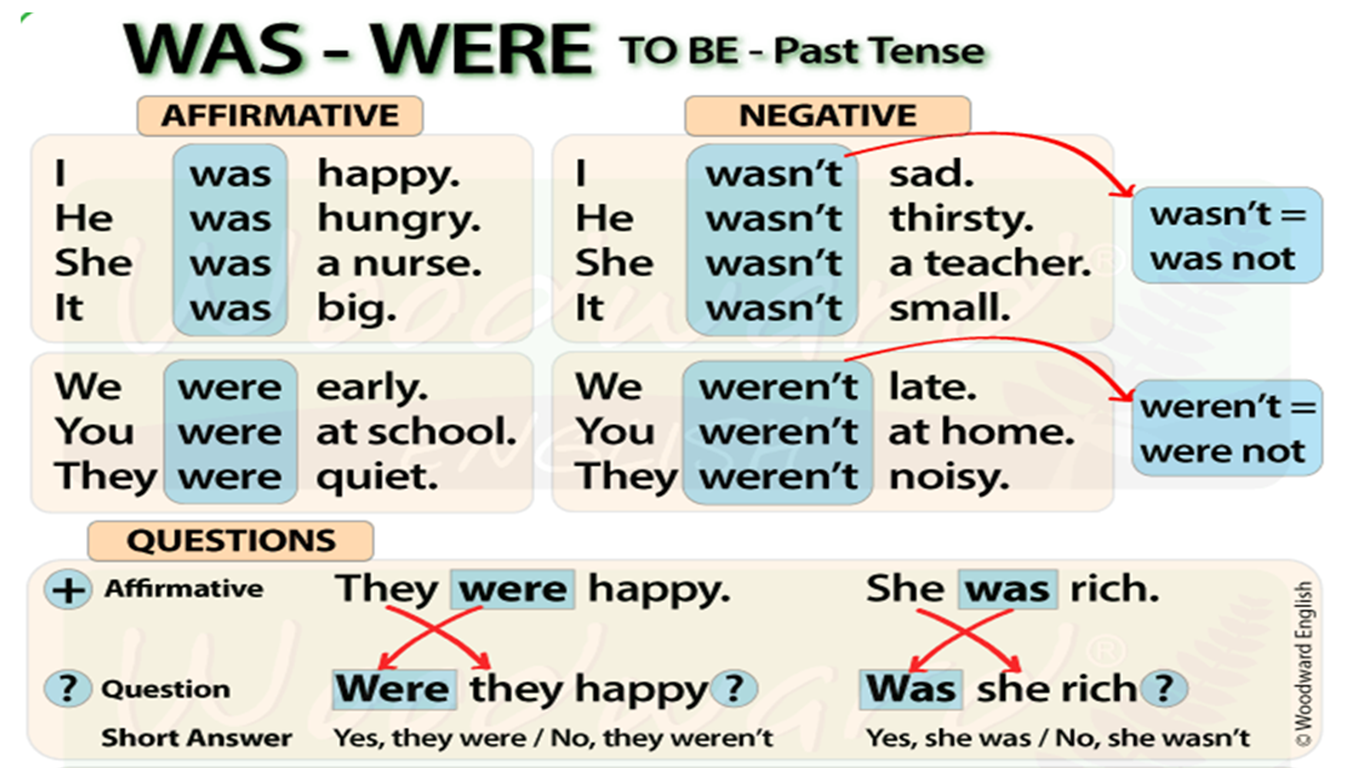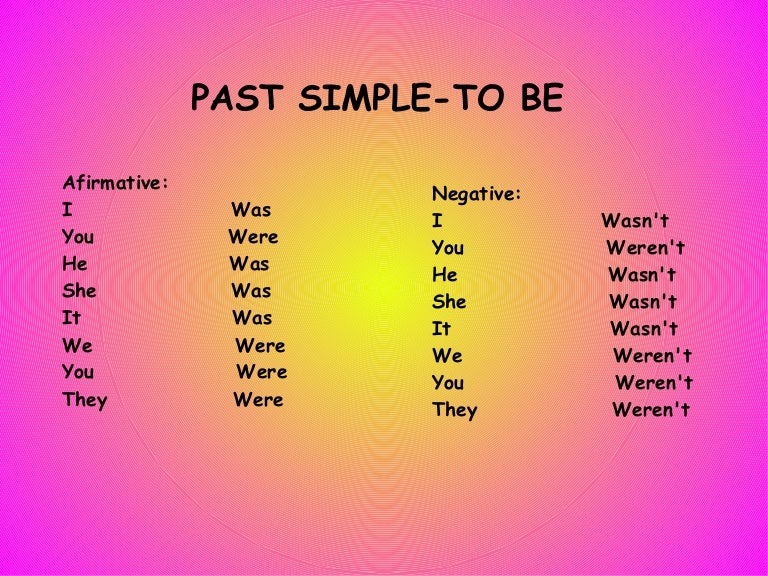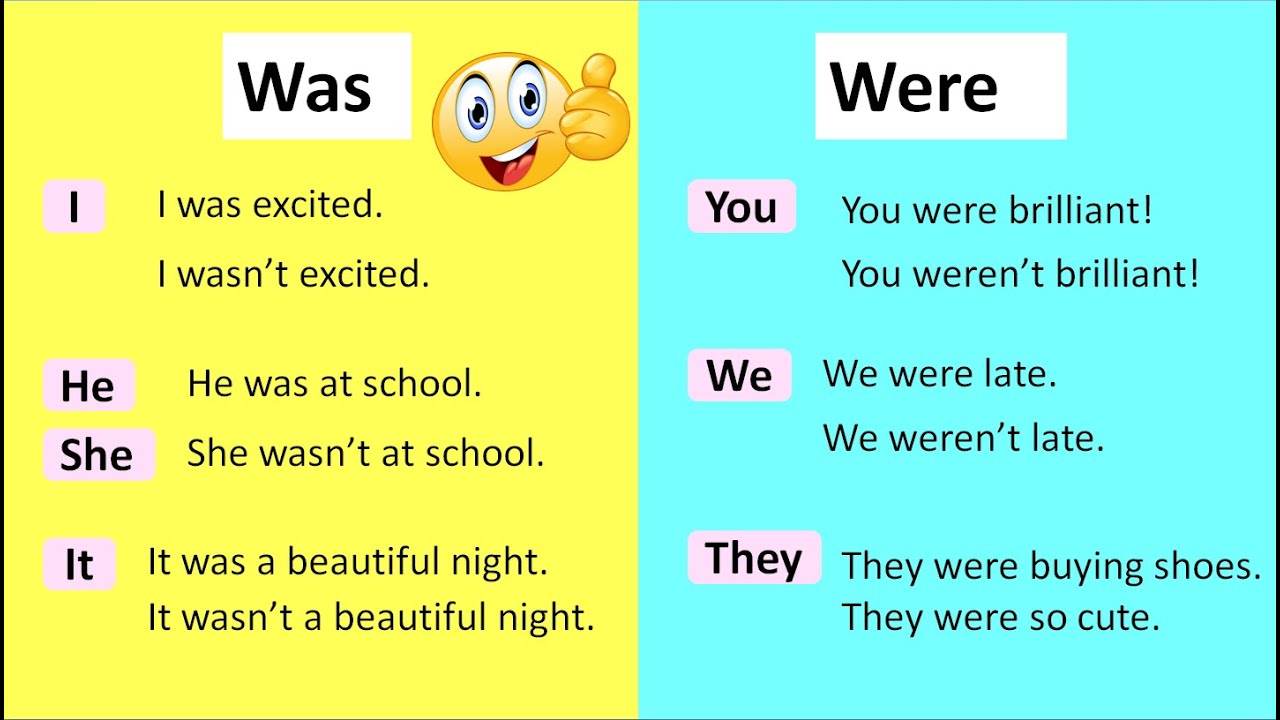How to Use "Was" vs. "Were" Correctly | Grammarly. Learn the difference between was and were, the first- and third-person singular past tense and subjunctive mood forms of the verb to be was were. Find out when to use were with hypotheticals, wishful thinking, and expressions of condition or possibility. See examples and tips for avoiding common mistakes.. Was vs. Were - Usage, Examples and Worksheet - GRAMMARIST. Learn the difference between was and were, two past tenses of the verb to be. Find out how to use them correctly in different situations, such as first person, second person, third person, hypothetical, and there were or there was. See examples and a worksheet to practice your skills.. "Was" vs. "Were": Use Cases And Examples - Thesaurus.com. Learn how to use the past tense forms of to be correctly in different contexts and moods. Was is for real or known facts, while were is for unreal or hypothetical statements or questions. See examples of was and were with first, second, and third person, and learn the difference between past indicative and past subjunctive.. Was vs. Were: Whats the Difference? - Writing Explained. Singular = I was, You were, He was, She was, It was Plural = We were, You were, They were I was driving to the park. You were drinking some water was were. He was about to eat dinner. She was at the roller rink. It was a great time. We were in the right spot was were. They were nowhere to be seen. If I was vs. If I were. Was vs. Were - The Blue Book of Grammar and Punctuation. A main difference is that one ( was) is singular, and the other ( were) is often plural. If was is past-tense singular, then it refers to one person or object being in a previous moment or time. Examples Karen was tired, so she took a nap. (She felt tired at a time before the present.). When to use "was vs were": Whats the difference? - The Word Counter was were. Grammar Tips Was and were are past-tense forms of the verb to be. Use was for the first and third-person singular tenses (I, he, she, or it). Use were for the second person singular or plural tenses (you, your, yours, we, they). Your writing, at its best Compose bold, clear, mistake-free, writing with Grammarlys AI-powered writing assistant was were. Was / Were - To Be in Past Tense Woodward English. Was / Were Games was were. Try our interactive games to practice To Be in the past tense: Was and Were in Short Answers. To Be in the Past Tense (mixed). I hope this was useful for you. A chart showing how to use Was and Were (To Be in the past tense) in affirmative and negative sentences and questions. Also games to practice Was vs Were.. Learn When To Use Was and Were - LanguageTool. "Was" and "were" are both past tense of the verb " (to) be." Whats the Difference Between "Was" and "Were"? Was and were are the past tense of the verb (to) be. Was is used for first-person singular and third-person singular. I was taking a walk around the neighborhood. It was a beautiful day.. Were Definition & Meaning - Merriam-Webster. The meaning of WERE is past tense second-person singular, past tense plural, and past subjunctive of be.. Basic English Grammar - WAS & WERE · engVid
